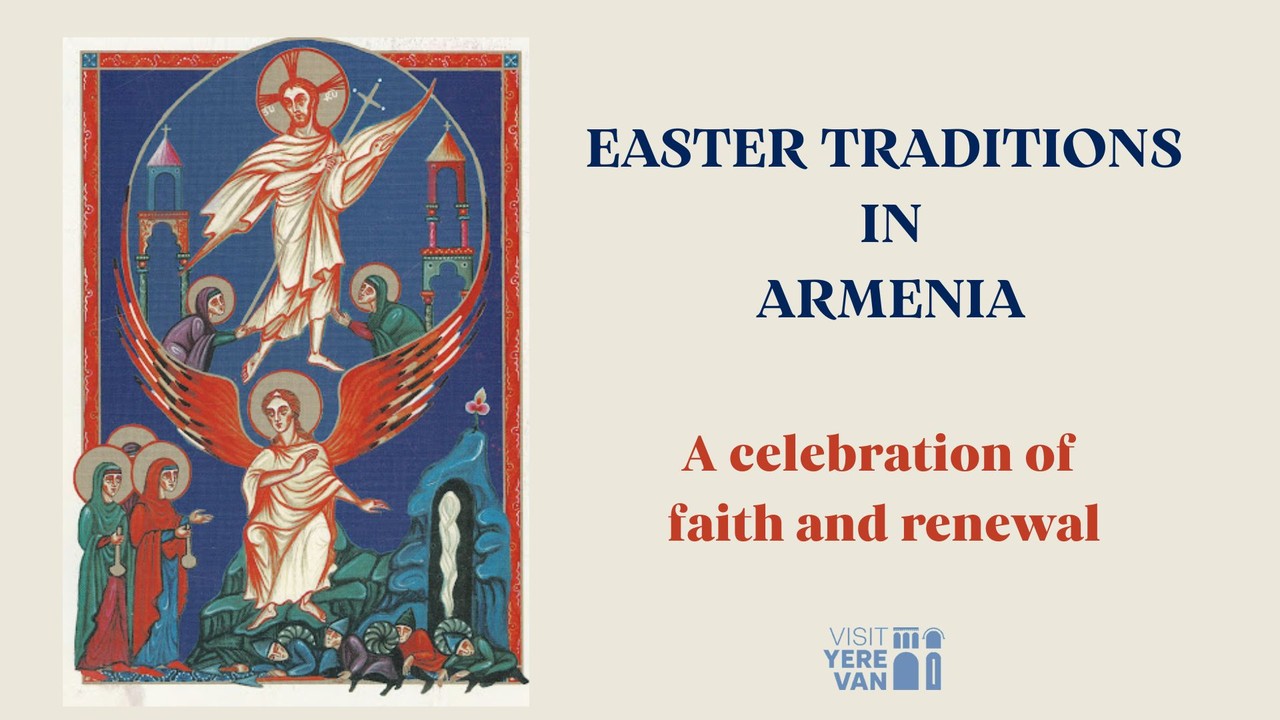BLOG

Easter Traditions in Armenia
A Celebration of Faith and Renewal
Easter, known as Zatik (Զատիկ) in Armenian, is one of the most sacred and cherished holidays in Armenia. Deeply rooted in Christian traditions, Easter marks the resurrection of Jesus Christ and is celebrated with profound religious devotion and cultural customs.
Easter is preceded by Great Lent (Medz Pahk), a 48-day period of fasting and spiritual reflection. Many Armenians abstain from meat, dairy, and other animal products during this time, preparing themselves for the joyous celebration of Christ’s resurrection. The final week before Easter, known as Holy Week (Avag Shabat), is filled with special church services, prayers, and rituals.
One of the most significant days in Holy Week is Holy Thursday, commemorating the Last Supper. Churches hold an important service known as Washing of the Feet, symbolizing humility and service. Good Friday follows, marking the crucifixion of Christ, with solemn prayers and processions in churches across Armenia.
Easter celebrations begin on Easter Eve (Saturday night to Sunday morning) with a special midnight liturgy in churches, where the resurrection of Christ is proclaimed. Families gather to attend this divine service, lighting candles and sharing in the joy of the occasion.
Red-dyed eggs – Symbolizing the blood of Christ and His resurrection. Egg-tapping games, known as havkitakhagh, are a fun part of the celebration, where family members try to break each other’s eggs.
Rice with raisins – Representing sweetness and abundance.
Fish – A common Easter dish, as fish is a sacred symbol in Christianity.
Greens – Symbolizing renewal and the arrival of spring.
Armenian gata or other pastries – Sweet treats are enjoyed to mark the joyous occasion.
Easter in Armenia is a time of joy, faith, and unity. This year, the Armenian Apostolic Church celebrates Easter on April 20.
Join in the celebrations by attending a church, sharing a festive meal, or enjoying unique traditions and vibrant festivities.

